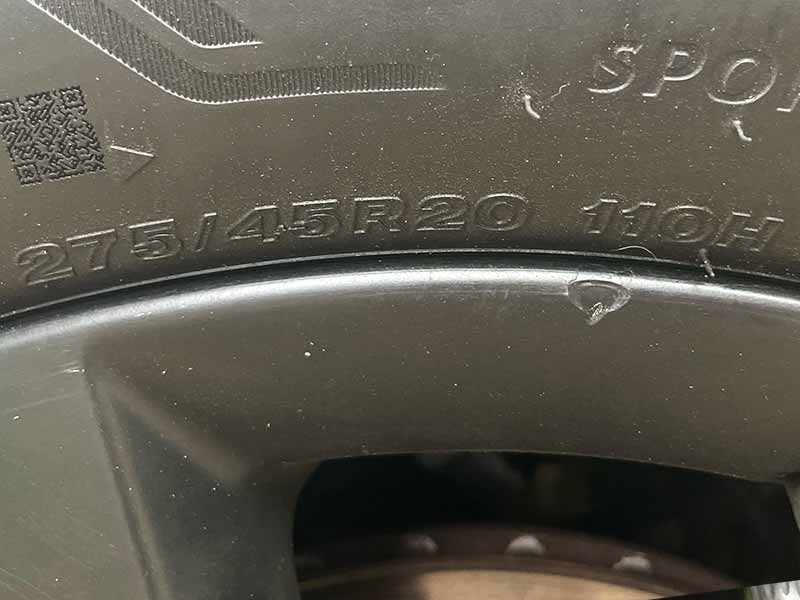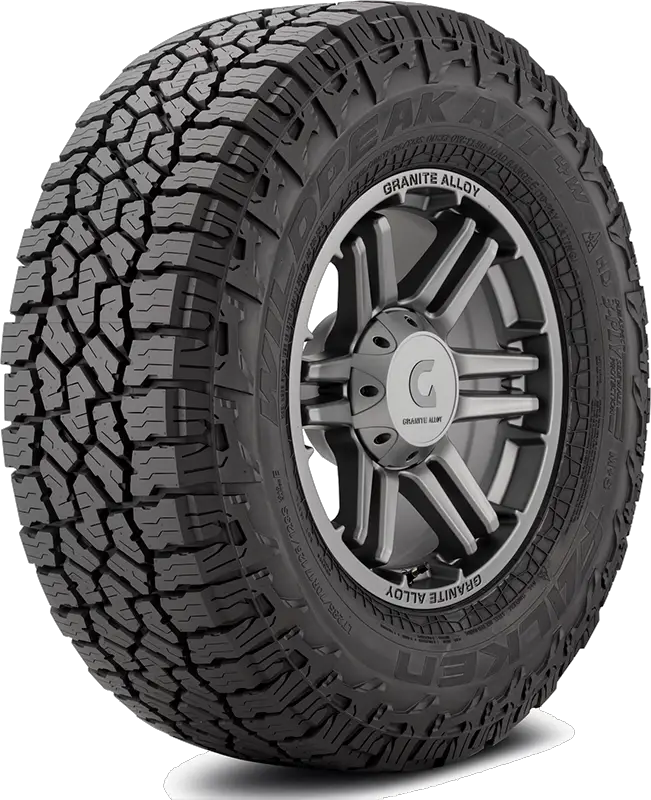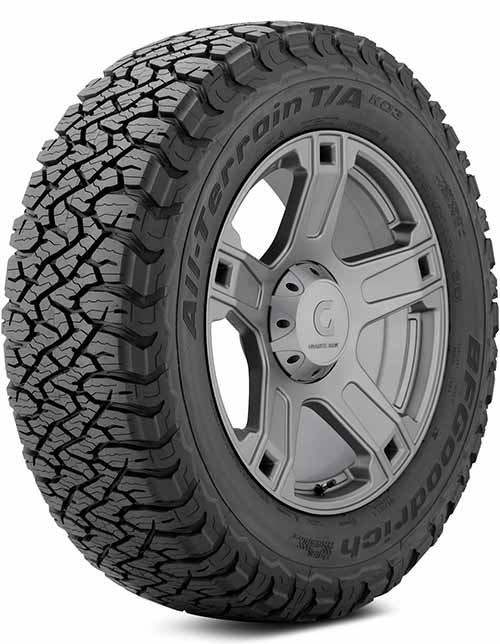Speed ratings tell us the fastest speed a tire can safely handle. They’re super important because they help you pick the right tire for your car or truck, making sure you stay safe on the road while getting the best performance from your vehicle.
Today, we’re going to focus on the difference between V-rated and H-rated tires.
Can I Use V-Rated Tires Instead Of H-Rated Tires?
When choosing between V-rated and H-rated tires, consider your vehicle’s recommendations, driving habits, and budget.
V-rated tires offer better handling and performance at higher speeds, while H-rated tires are suitable for everyday driving and typically have a longer lifespan.
Picking the right tire means you’ll have better control over your car or truck, a smoother ride, and even better fuel efficiency.
Let’s take a closer look.
| SPEED SYMBOL | MAX SAFE MPH |
|---|---|
| A1 | 3 |
| A2 | 6 |
| A3 | 9 |
| A4 | 12 |
| A5 | 16 |
| A6 | 19 |
| A7 | 22 |
| A8 | 25 |
| B | 31 |
| C | 37 |
| D | 40 |
| E | 43 |
| F | 50 |
| G | 56 |
| J | 62 |
| SPEED SYMBOL | MAX SAFE MPH |
|---|---|
| K | 68 |
| L | 75 |
| M | 81 |
| N | 87 |
| P | 93 |
| Q | 99 |
| R | 106 |
| S | 112 |
| T | 118 |
| U | 124 |
| H | 130 |
| V | 149 |
| W [Within ZR] | 168 |
| Y [Within ZR] | 186 |
| (Y) [Within ZR] | Above 186 |
Understanding Tire Speed Ratings
Let’s start by talking about what tire speed ratings really mean. A tire speed rating is a letter that tells you the maximum speed a tire can safely handle when it’s properly inflated and carrying the right amount of weight. This letter is usually found on the sidewall of your tire, right next to the size information. It looks something like this: P225/60R16 97H. In this case, the “H” is the tire’s speed rating.
Understanding V And H-Rated Tires
There are a bunch of different speed ratings, but we’ll focus on the ones you’ll most likely come across when shopping for tires for your car or truck: H-rated and V-rated tires.
- H-Rated Tires: H-rated tires have a max speed of 130 miles per hour (mph). They’re designed for most family cars, sedans, minivans, and even some SUVs. H-rated tires are perfect for everyday driving and can handle different road conditions pretty well.
- V-Rated Tires: V-rated tires can go up to 149 mph. These tires are usually found on sports cars, luxury sedans, and performance SUVs. They’re made for drivers who want better handling and performance at higher speeds. V-rated tires often have a sportier feel and provide a more responsive driving experience.
How Speed Ratings Impact Driving Performance And Safety
The speed rating of a tire can really make a difference in how your vehicle handles and performs. Tires with higher speed ratings are designed to handle the heat and stress that come with driving at faster speeds. They usually have a better grip on the road, which means improved cornering and braking abilities.
But it’s not just about performance – it’s about safety too! Driving on tires with the correct speed rating ensures that your tires can handle the speeds your vehicle is capable of. If you use tires with a lower speed rating than what’s recommended for your car, you risk causing damage to the tires and potentially losing control of your vehicle. Always make sure to follow the manufacturer’s recommendations for your vehicle’s tire speed ratings.

Comparing V-Rated And H-Rated Tires
Now that we’ve got a better understanding of tire speed ratings, let’s take a closer look at how V-rated and H-rated tires compare when it comes to performance.
Performance Differences
- Speed Capabilities: The most obvious difference between V-rated and H-rated tires is their speed capabilities. H-rated tires can handle speeds up to 130 mph, while V-rated tires can go up to 149 mph. Remember, these are the max speeds the tires can safely handle, not a recommended cruising speed!
- Handling: V-rated tires are designed for better handling, especially at higher speeds. They typically have a stiffer sidewall and a larger contact patch (the part of the tire that touches the road) for improved grip and stability. H-rated tires still offer good handling for everyday driving but might not be as responsive as V-rated tires during high-speed maneuvers or sudden turns.
Durability And Wear
When it comes to tire life, the difference between V-rated and H-rated tires can vary depending on the specific tire brand and model. Generally speaking, though, tires with higher speed ratings tend to wear out faster than those with lower speed ratings. This is because they’re made with softer rubber compounds to provide better grip and performance at high speeds.
While V-rated tires might have a shorter lifespan than H-rated tires, the difference isn’t usually huge. To get the most out of your tires, make sure to keep them properly inflated, rotate them regularly, and have your vehicle’s alignment checked.
Cost Comparison
In general, V-rated tires tend to be a bit more expensive than H-rated tires. This is because they’re built with more advanced technology and materials to provide better performance at higher speeds. That said, prices can vary quite a bit between tire brands and models, so it’s a good idea to shop around and compare prices before making a decision. Keep in mind that investing in high-quality tires can save you money in the long run by reducing the chances of tire-related accidents and improving your vehicle’s fuel efficiency.

Factors To Consider
When making the decision to switch your tires from the current speed rating to something else, you’ll want to consider your vehicle needs, driving habits, and costs.
Vehicle Manufacturer Recommendations
The first thing to think about when deciding between V-rated and H-rated tires is your vehicle manufacturer’s recommendations. You can find this information in your vehicle owner’s manual or on the tire information placard, usually located inside the driver’s side doorjamb. Following these recommendations will ensure that your tires match your vehicle’s capabilities and provide a safe, comfortable ride.
Driving Habits And Needs
Next, consider your own driving habits and needs. Are you mostly driving around town, running errands, and commuting to work? If so, H-rated tires might be just what you need. They’re designed for everyday driving and can handle a variety of road conditions.
On the other hand, if you’ve got a sports car or performance vehicle and you love pushing it to its limits, V-rated tires might be a better choice. These tires are designed for higher speeds and provide better handling, so you can enjoy a more responsive and thrilling driving experience.
Budget And Maintenance
Last but not least, take your budget and maintenance preferences into account. While V-rated tires might offer better performance at higher speeds, they can also be more expensive upfront and wear out faster than H-rated tires. If you’re on a tight budget or you’d rather not deal with frequent tire replacements, H-rated tires could be a more practical option.
Remember, though, that investing in quality tires is important for your safety and your vehicle’s performance. Make sure to factor in the long-term benefits and potential cost savings of choosing the right tire for your needs.
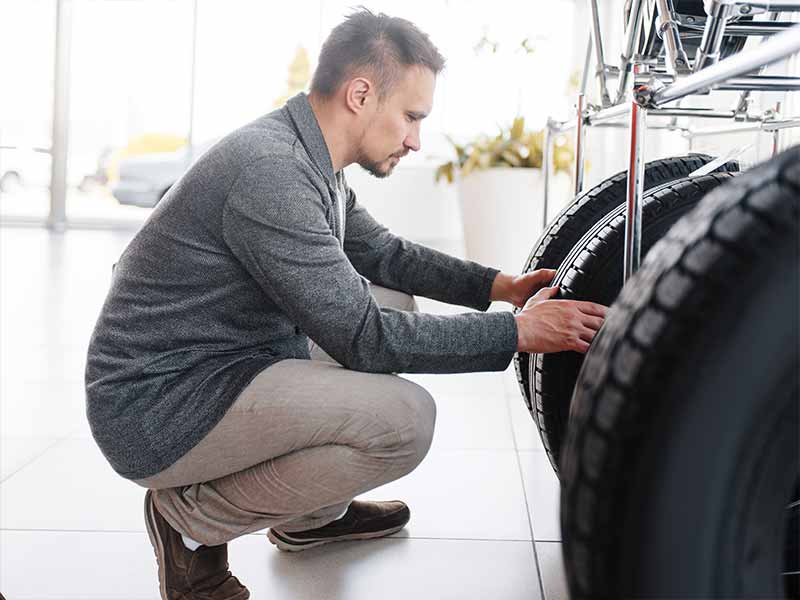
When Is It Safe To Switch?
You might be wondering if it’s safe to switch from H-rated tires to V-rated tires. The good news is that, in most cases, it’s perfectly safe to use V-rated tires on a vehicle that originally came with H-rated tires. Since V-rated tires have a higher speed capability and better handling, they can actually improve your vehicle’s performance.
However, there are a few important things to keep in mind:
- Make sure to replace all four tires at the same time. Mixing tires with different speed ratings can cause handling issues and uneven wear.
- If your vehicle has a tire pressure monitoring system (TPMS), make sure the new tires are compatible with the system.
- Double-check your vehicle manufacturer’s recommendations to ensure that V-rated tires are suitable for your specific make and model.
Risks And Potential Issues
While it’s generally safe to use V-rated tires instead of H-rated tires, there are a few potential issues you should be aware of:
- V-rated tires might have a shorter lifespan than H-rated tires, as they often use softer rubber compounds to provide better grip at high speeds.
- Using V-rated tires can sometimes affect your vehicle’s ride comfort, as they typically have stiffer sidewalls that can result in a firmer ride.
- If you’re replacing only two tires, be sure to install the new V-rated tires on the rear axle, regardless of whether your vehicle is front-wheel drive or rear-wheel drive. This can help maintain stability and prevent oversteer or understeer.
Importance Of Proper Installation And Tire Care
No matter what type of tire you choose, it’s crucial to have them properly installed and maintained. This includes:
- Keeping your tires properly inflated according to your vehicle manufacturer’s recommendations.
- Rotating your tires regularly to ensure even wear.
- Having your vehicle’s alignment checked and adjusted if needed.
- Monitoring your tire tread depth and replacing tires when they’re worn.
By taking good care of your tires, you’ll help ensure a safe and enjoyable driving experience, no matter which speed rating you choose!
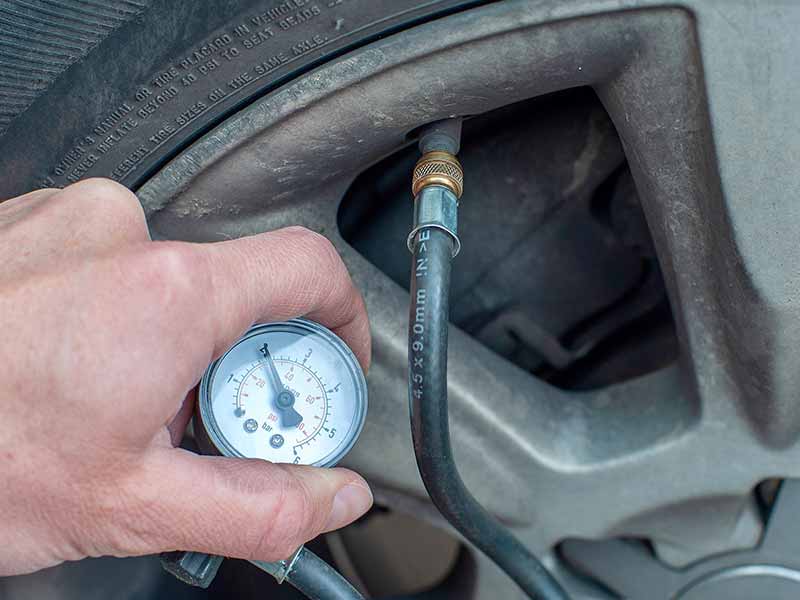
Resources
Below are some links you may find helpful when learning about tires
Final Thoughts
To recap, H-rated tires are perfect for everyday driving, with a max speed of 130 mph, while V-rated tires can handle speeds up to 149 mph and are designed for better handling and performance at higher speeds.
When choosing between V-rated and H-rated tires, it’s important to consider your vehicle manufacturer’s recommendations, your own driving habits and needs, and your budget. Remember, safety should always be your top priority when it comes to picking the right tires for your car or truck.
Good luck and happy motoring.
